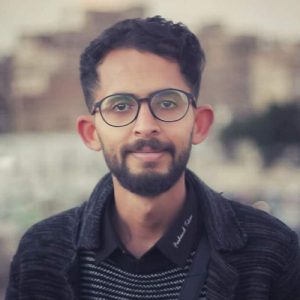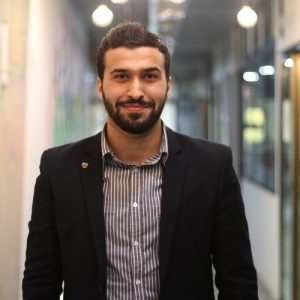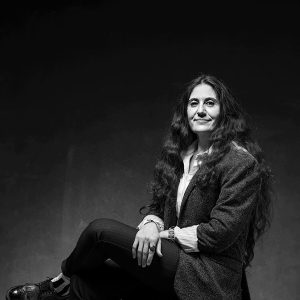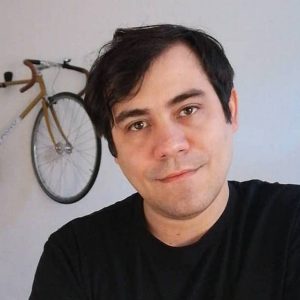24 Jun 2022 | News and features, Rwanda, Uganda, United Kingdom
While President Paul Kagame of Rwanda was welcoming 53 visiting heads of government to his capital, perhaps the thought went through his mind that this was a moment for self-congratulation. Once, he was an exile from a country too dangerous for people of his ethnicity. Now he stands on the world stage.
Under Kagame’s iron rule, little landlocked Rwanda, a country not much bigger than Wales and horribly scarred by civil war and genocide, was honoured to be chosen to host the 2022 Commonwealth Heads of Government Meeting, the first since the pandemic.
There have been 24 such summits, colloquially known as Chogm, which bring together components of the old British Empire, but never before has one been held in a country that had not previously experienced British rule. Until a generation ago, the boundary between anglophone and francophone Africa was where Rwanda abutted Uganda, but Kagame has shifted that boundary westward, and become a new addition to the Commonwealth family.
That is a part of the reason that his government was able to secure the deal to receive the UK’s unwanted asylum seekers, which was a coup for Kagame, despite the subsequent legal obstacles. In announcing it, Boris Johnson has lauded Rwanda as “one of the safest countries in the world”.
That remark invokes a scathing riposte from Carine Kanimba, whose father, Paul Rusesabagina, is Rwanda’s best known political prisoner. “Within Rwanda, people are not safe,” she said. “Rwandans in the Congo, where Kagame has troops, are not safe; Rwandans in other African countries are not safe. Even outside of Africa, Rwandans are not safe, and having Boris Johnson say ‘hey, I don’t care’ sets a rally bad precedent.”
There is a dark underside to Rwanda’s post-genocide history, which has been obscured by the horror of what happened over ten weeks in 1994, when Hutu extremists massacred hundreds of thousands of the Tutsi minority. Relieved that the violence has subsided, the developed world has poured aid into the country, and was willing to accept the image Kagame projects as the firm ruler who brought peace to a troubled land. In Rwanda, there are no independent media to tell a different story. President Kagame tolerates no criticism at home, and his opponents abroad have to be constantly aware that his agents might hunt them down.
Rusesabagina is the only Rwandan whose fame matches Kagame’s. He is a Hutu, who ran a hotel in Kigali in 1994, where he provided sanctuary for hundreds of Tutsi, whose lives he saved. They included two tiny children, Anaȉse and Carine Kanimba, whose Tutsi parents had been slaughtered, and whom he adopted as his daughters. His story was told in the 2004 film, Hotel Rwanda.
Rusesabagina went into exile early in Kagame’s presidency – he obtained Belgian citizenship – and became a critic of the regime. In August 2020, he was persuaded by a man he trusted, a pastor named Constantin Niyomwungere, to board a private plane bound – he thought – for Burundi. He had been tricked. The plane landed in Kigali, where Rusesabagina was seized and sentenced to 25 years in prison. A prison term that long, imposed on a man who turned 68 in June, has been aptly described by the Belgian MEP, Kathleen van Brempt, as a “de facto death sentence”.
“Constantin Niyomwungere is an agent of the Rwandan government,” Carine Kanimba claims. “He spent two years getting our father’s trust. He was told ‘you have to find a way of getting him to Rwanda’. Our father believed he was going to an exchange between bishops in Burundi.”
“The flight from Dubai to Rwanda cost 120,000 US dollars,” Anaȉse Kanimba added. “Dad was the only one in the plane, apart from the crew, and Niyomwungere.”
Rwanda is one of the poorest countries in Africa, heavily reliant on foreign aid.
No member of Rusesabagina’s family can risk being in Rwanda while Kagame is in power, so their only contact with him is a five-minute phone call, once a week, on a Friday. He tries to sound upbeat, but they know that he is struggling with health problems. He used to listen to Radio America, but now he is allowed to hear only the strictly controlled Rwandan media.
And yet, considering what they have been through, the sisters come over as remarkably cheerful. They exude confidence that their family will be reunited, citing the precedent of Nazanin Zaghari-Ratcliffe’s release from an Iranian jail, and international opinion is increasingly on their side. “One of the things we have learnt from [Nazanin’s husband] Richard Ratcliffe is to push any button, then follow on, and follow on,” Anaȉse said. “We are certain that Dad will come home.”
Their father’s arrest has been condemned by the European Parliament, and by the UN Working Group on Arbitrary Detention. On 19 May, the US State Department declared that Rusesabagina had been “wrongfully detained” – ironically, on the day after the Home Secretary Priti Patel had met Rwanda’s foreign minister in Geneva to finalise arrangements for deporting asylum seekers to Rwanda. On Tuesday, 21 June, the US House of Representatives debated a motion calling for Rusesabagina’s release. But so far, Kagame’s credibility in the eyes of the UK government is apparently intact.
“The US has taken the courageous road,” Carine remarked. “But what we are seeing from the UK is the opposite – the road of cowardice. Boris Johnson has put Kagame on a pedestal.”
“I don’t have any faith in Boris Johnson,” Anaȉse said. “But maybe Prince Charles will have the humanity and leadership to speak to Kagame.”
What they hope is that Kagame will need to make a gesture to protect his reputation, and releasing the elderly Rusesabagina would be the obvious attention grabber – but if that happens, it still leaves others in his grip, including some exceptionally courageous journalists.
In April 2020, a young journalist named Cyuma Hassan Dieudonne, also known as Dieudonne Niyonsenga, who ran a YouTube channel called Ishema TV, went out to report on conditions in the Rwandan countryside. He was arrested, held in pre-trial detention for 11 months, released, rearrested, and sentenced to seven years in prison, an outcome that Reporters Without Borders has described as “absurd and arbitrary”.
“This guy was so brave,” Carine said. “He is 29 years old, the same age as me, he went out into parts of the country and reported on Covid restrictions, police brutality and all the news the government did not want reported, that is, not about Kigali and its clean streets. His sister has visited him in prison. She says he has been treated so badly that he will probably never have children. This is the consequence of speaking out in Rwanda.”
Even those who flee abroad cannot be sure of escaping the regime’s long arm. Patrick Karegeya was one of Kagame’s comrades in the ex-pat Tutsi army who helped to overthrow Milton Obote in Uganda in 1986, and install the current long-serving president, Yoweri Museveni. With Museveni’s blessing, they invaded Rwanda. Karegeya was head of intelligence in the new regime until he clashed with Kagame, and fled, only to be murdered in a Johannesburg hotel.
The Kanimba sisters have also been harassed and spied on – particularly Carine, who lives in Belgium, while Anaȉse is further out of reach, in Texas. A senior figure in the Rwandan government used Twitter to suggest that Carine merited the ‘Golden Machete’, a sobriquet that pro-Kagame internet trolls use to denounce those they accuse of being pro-genocidaire. It is a category that seems to include anyone and everyone who has criticised the President. Michela Wrong, the British journalist whose meticulously researched book Do Not Disturb demolished the myth of Kagame, was named winner of the 2021 Golden Machete. But machetes were the weapons used to butcher the sisters’ biological parents, so suggesting that Carine deserves a Golden Machete is, at best, a sick joke.
Most frighteningly Carine has been followed in the streets of Brussels by people she believes to be Kagame’s agents, and her phone was infected last summer with the Pegasus software, enabling hackers to trace her movements and overhear her conversations.
She says: “My phone was infected 23 times. There is a person on the other side who is obsessed with knowing what I am doing.”
“It’s all Kagame. I’m a 29-year-old woman. I’m just speaking out. It’s pathetic. Kagame wants to be recognised as a hero. We are targets.
22 Jun 2022 | Afghanistan, Africa, Americas, Asia and Pacific, Belarus, China, Europe and Central Asia, European Union, Hungary, India, Kenya, Magazine, Magazine Contents, Philippines, Poland, Russia, Turkey, Ukraine, United Kingdom, United States, Volume 51.02 Summer 2022 Extras
The summer issue of Index magazine concentrated its efforts on the developing situation between Russia and Ukraine and consequential effects around Europe and the world.
We decided to give voice to journalists, artists and dissidents who chose to respond to this ruthless war. At the same time, we didn’t forget other attacks on freedoms that haven’t been covered around the globe as much as they should.[/vc_column_text][vc_custom_heading text=”Up front”][vc_column_text]Joining Ukraine’s battle for freedom, by Jemimah Steinfeld: We must stand with the bold and brave against Putin.
The Index: A global tour of free expression, departing from the poll booth and arriving at the journalists reporting under Taliban rule.[/vc_column_text][vc_custom_heading text=”Features”][vc_column_text]Fifty years of pride and prejudice, by Peter Tatchell: Following the rise and
corporate fall of London’s march for LGBT rights, will grassroots voices rise again?
India’s meaty issue, by Aishwarya Jagani: When a burger comes with a side of oppression.
Cartoon, by Ben Jennings: Art imitates life, caveman style.
My three years of hell in an Uyghur ‘re-education’ camp, by Gulbahar Hatiwaj and Rahima Mahmut: As the world stays silent, hear the truth from inside China’s brutal concentration camps.
One step ahead of the game, by Chen Dan: Media criticism of the Chinese government is all part of the power play.
Welcome to the kingdom of impunity, by Michael Deibert: The landscape is dangerous for journalists in Haiti. Murders and kidnappings are a daily risk.
Politically corrected? By Issa Sikiti da Silva: The banned words the Kenyan
government doesn’t want to hear in this election year.[/vc_column_text][vc_custom_heading text=”Special report: The battle for Ukraine”][vc_column_text]Losing battle for truth in Russian lecture halls, by Ilya Matveev: The war has put a new strain on academic freedom. A Russian lecturer laments his lost classroom.
Don’t be afraid to say two plus two is four, by Mark Frary and Alla Gutnikova: As a convicted student journalist speaks out for freedom, do Russian dissidents once again face the gulag?
Emotional baggage, by Slavenka Drakulic: How it feels to pack up a life in Ukraine and become a refugee.
Back to the future, by Martin Bright: The world has been turned
upside down for Ukrainian reporters, and this is their new landscape.
On not being shot, by John Sweeney: Amidst the Kremlin-wrought
wreckage, do we need a new era of journalism?
Russia’s trojan horse moves closer to Europe, by Viktória Serdult: In Hungary, Putin’s right-hand man and Europe’s right-wing firebrand wins again.
Turkey’s newfound russophilia, by Kaya Genç: Putinism is seeping into Turkey, and it spells trouble for future freedoms.
Divided by age and a tv screen, by Hanna Komar: How do you make sure your
family see the truth when they’re blinded by Kremlin propaganda? A Belarus activist speaks out.
Culture in the cross hairs, by Andrey Kurkov: Decades after Soviet rule, Ukrainian culture is once again under threat, as are the lives behind the creative expression.
Bordering on media control, by Kseniya Tarasevich: False information about
Ukraine finds fertile breeding ground in Poland.
Treat tragedies of the Ukraine war with dignity, by Olesya Khromeychuk: The grieving hearts left behind when death becomes news fodder.
Worth a gamble, by Jemimah Steinfeld: When telling the truth is a crime, turn to a criminal spam operation.[/vc_column_text][vc_custom_heading text=”Comment”][vc_column_text]
Cancel Putin, not culture, by Maria Sorenson: Banning Russian artists assumes
that they are all collaborators of the Russian state and goes against artistic freedoms.
Beware the ‘civilisation’ battle, by Emily Couch: Why Europe must reject
anti-Asian racism to fully stand with Ukraine.
The silent minority, by Ruth Smeeth: A tribute to those whose work never saw the light of day.[/vc_column_text][vc_custom_heading text=”Culture”][vc_column_text]‘The light is no longer the light it used to be’, by Lyuba Yakimchuk: The poet on children being indoctrinated and the elderly disorientated in Russia-occupied Ukraine.
A cassandra worth heeding, by Dominic Cavendish: Murdered Russian journalist
Anna Politkovskaya, whose dispatches from Chechnya should be put in the spotlight.
Poetic injustice, by Stephen Komarnyckyj: History is repeating itself
on the pages penned by Ukrainian writers.
Banking on Russia’s poetic spirit, by Maria Bloshteyn and Yulia Fridman: A “piggy bank” of Russian poetry is fighting on the right side of Putin’s war.
Metaphors and madness, by Eduardo Halfon: In Guatemala, truth is best expressed through fiction.
Metal shows its mettle, by Guilherme Osinski: A heavy metal band labelled
“satanic” by Iran is free from prison and taking back the microphone.
America’s coming crucible, by Jo-Ann Mort: Women in the USA might soon be in the dark about their own bodies.
11 May 2022 | Media Freedom, News and features, Rwanda, United Kingdom
Index has filed a Council of Europe alert raising concerns about the decision to exclude certain journalists from accompanying UK Home Secretary Priti Patel on an official visit to Rwanda where she announced a proposed new arrangement for sending British migrants to the central African country to have their asylum claims decided.
Journalists from The Guardian, Financial Times and The Mirror were among those excluded by the Home Office on the mid-April press trip, restricting their ability to scrutinise a significant development in British foreign policy.
Among those excluded was Rajeev Syal, the Guardian’s home affairs editor, who had previously reported extensively on bullying allegations against Patel. Other home affairs specialists did accompany Patel on the trip. The Guardian said: “We are concerned that Home Office officials are deliberately excluding specific journalists from key briefings and engagements.”
The Financial Times told Press Gazette: “On this occasion our journalists were excluded from the press trip and received minimal briefing. It is clearly not good practice to exclude some media from government meetings simply because they are willing to ask difficult questions.”
Index understands it is not the first time journalists have been blacklisted by the Home Office in this way. Only a select group of reporters was invited on a trip Priti Patel made in November 2021 to Washington DC to discuss terrorism and the global migration crisis with Alejandro Mayorkas, US secretary of homeland security.
The government’s controversial scheme will see migrants who arrive in small boats after crossing the English Channel flown 4,000 miles to Rwanda to have their claims processed; in her speech in Rwanda, Patel said 28,000 migrants crossed the Channel this way in 2021.
Migrants will be encouraged to relocate to the African country. Patel said, “Those who are resettled will be given support, including up to five years of training to help with integration, accommodation, and healthcare, so that they can resettle and thrive.”
Opponents of the scheme have questioned Rwanda’s record on human rights and free expression. Journalists working in Rwanda operate under a strict accreditation system and criticism of President Paul Kagame is off limits.
In March, Human Rights Watch said Rwanda did not match up to international standards of free speech and warned of a wave of arrests of Rwandan journalists and commentators: “Judicial authorities in Rwanda, lacking the independence to stand up and protect free speech in accordance with international law, have unjustly convicted and jailed people based on their protected speech and opinions,” said Lewis Mudge, Central Africa director at Human Rights Watch.
The first legal challenge to the Rwanda scheme was launched last week on behalf of an Iranian asylum seeker. Lawyers argue the proposals breach international law, the UN refugee convention and British data protection legislation.
In her speech in Rwanda, Patel said, “This agreement fully complies with all international and national law, and as part of this ground-breaking agreement, the UK is making a substantial investment in the economic development of Rwanda.”
The Home Office has denied targeting certain journalists and says it adheres the UK’s Government Communication Service Propriety Guidance in dealing with the media.
The Council of Europe was founded after World War II to protect human rights, democracy and the rule of rule across the continent. It is committed to upholding the European Convention on Human Rights.
The British government will be asked to provide a formal response to the alert, although it has a poor record in this regard, responding to just 10 per cent of the alerts filed in 2021.

 Yemeni artist Thiyazen Al-Alawi uses his craft to shed light on the destructive situation in Yemen through street art campaigns. He hopes to inform the public of what the war has done to his homeland.
Yemeni artist Thiyazen Al-Alawi uses his craft to shed light on the destructive situation in Yemen through street art campaigns. He hopes to inform the public of what the war has done to his homeland. Moe Moussa is a journalist, podcaster, poet, and the founder of the Gaza Poet Society. He uses various forums and mediums to amplify the voices of Palestinians.
Moe Moussa is a journalist, podcaster, poet, and the founder of the Gaza Poet Society. He uses various forums and mediums to amplify the voices of Palestinians. Fatoş İrwen is a Kurdish artist and teacher from Diyarbakır, Turkey working with a variety of materials and techniques.
Fatoş İrwen is a Kurdish artist and teacher from Diyarbakır, Turkey working with a variety of materials and techniques. Hamlet Lavastida has been described as a political activist by way of art. Lavastida uses his art to document human rights abuses in Cuba and to criticise Cuban authorities.
Hamlet Lavastida has been described as a political activist by way of art. Lavastida uses his art to document human rights abuses in Cuba and to criticise Cuban authorities.